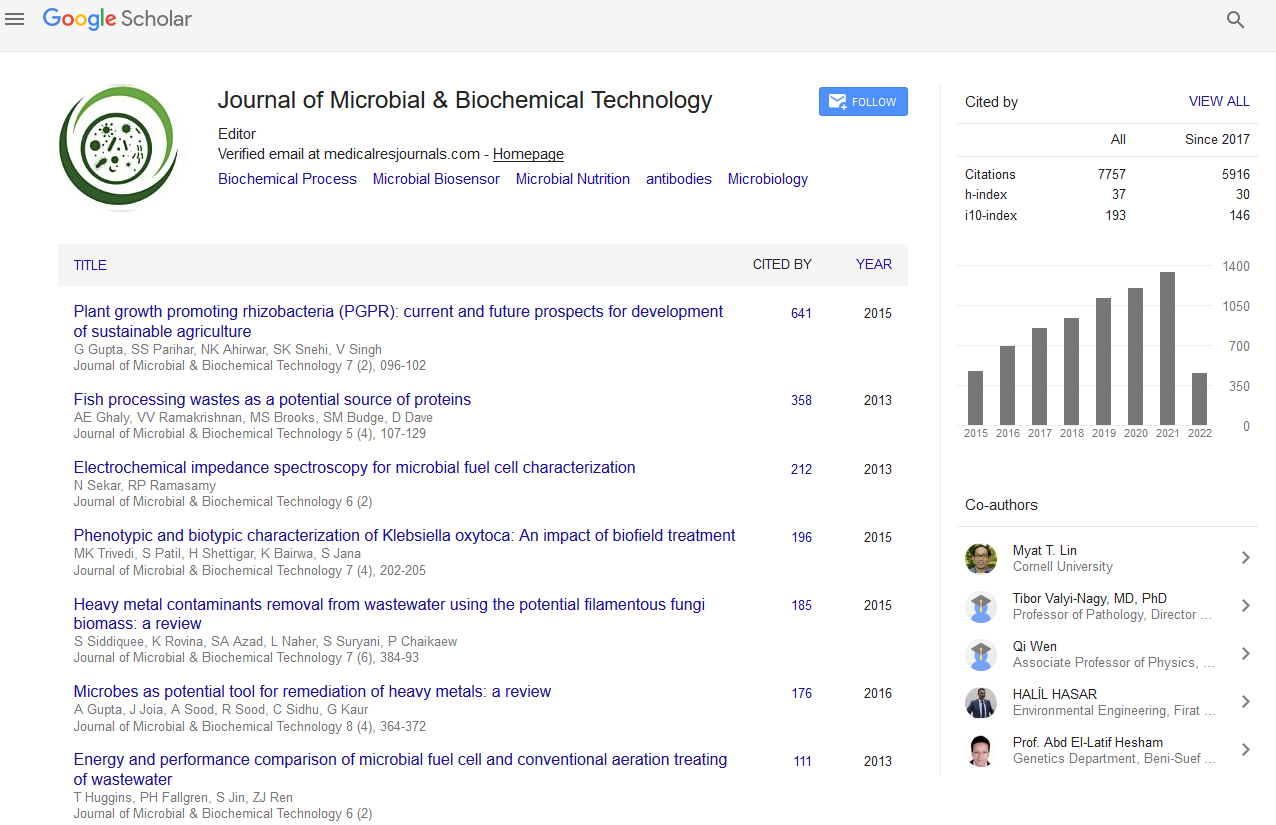PMC/PubMed Indexed Articles
Indexed In
- Academic Journals Database
- Genamics JournalSeek
- Academic Keys
- JournalTOCs
- China National Knowledge Infrastructure (CNKI)
- Scimago
- Access to Global Online Research in Agriculture (AGORA)
- Electronic Journals Library
- RefSeek
- Directory of Research Journal Indexing (DRJI)
- Hamdard University
- EBSCO A-Z
- OCLC- WorldCat
- SWB online catalog
- Virtual Library of Biology (vifabio)
- Publons
- MIAR
- University Grants Commission
- Geneva Foundation for Medical Education and Research
- Euro Pub
- Google Scholar
Useful Links
Share This Page
Journal Flyer

Open Access Journals
- Agri and Aquaculture
- Biochemistry
- Bioinformatics & Systems Biology
- Business & Management
- Chemistry
- Clinical Sciences
- Engineering
- Food & Nutrition
- General Science
- Genetics & Molecular Biology
- Immunology & Microbiology
- Medical Sciences
- Neuroscience & Psychology
- Nursing & Health Care
- Pharmaceutical Sciences
In silico analysis of gene encoding catechol 2,3-dioxygenase (XylE) in Pseudomonas sp. degrading crude oil bacteria
World Congress and Expo on Applied Microbiology
August 18-20, 2015 Frankfurt, Germany
Hadiatullah
Brawijaya University Malang, Indonesia
Posters-Accepted Abstracts: J Microb Biochem Technol
Abstract:
xylE gene is the gene encoding Catechol 2,3-dioxygenase which responsible to degrading of aromatic compounds. The objective of this paper to observe the relationship of the Pseudomonas sp. based on amino acid sequence with the potency of degraging crude oil. The method used were collecting amino acid sequence of xylE gen of Pseudomonas sp. which obtained from GeneBank (www.ncbi.nm.nih.gov), analysis of polimorfism obtained by using BioEdit after allignment, The phylogenetic trees were constructed based on protein sequences of xylE gene MEGA5.05 software, The conserved domains of amino acid relationship from 10 kinds of Pseudomonas were identified by using BioEdit software. The phylogenetic tree showed that Pseudomonas putida is similar to Pseudomonas stutzeri and has a close similarity with Pseudomonas pseudoalcaligenes based on amino acid relationship. The data indicated that Pseudomonas putida shares genetic similarities with Pseudomonas stutzeri, and the both of them probably belong to the same potency of degarading crude oil. Based on the polimorfism site, Pseudomonas mendocina and Pseudomonas veronii have less potency than other Pseudomonas species in degarding crude oil.


